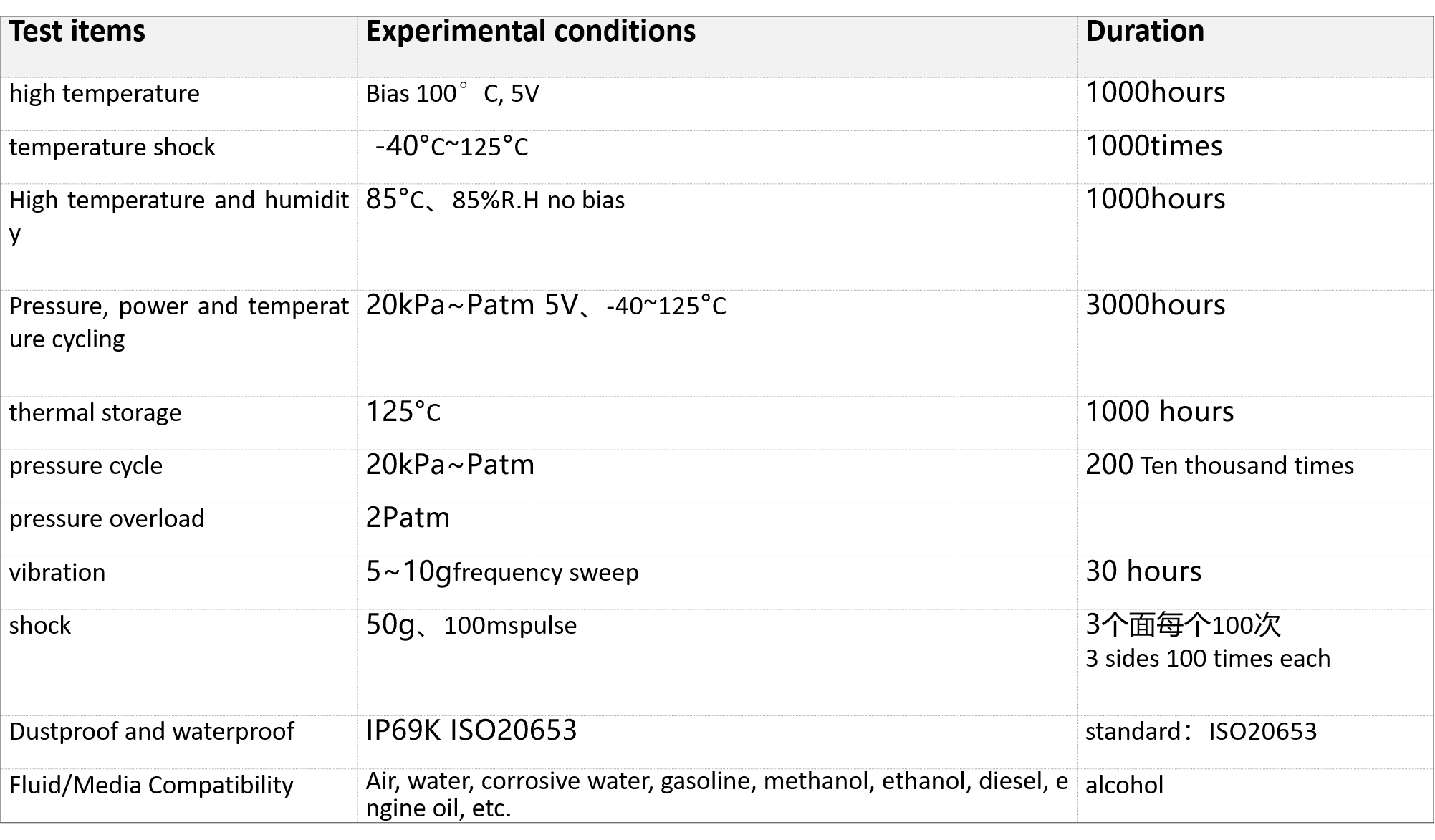Automobiles are complex industrial products. As people have more and more requirements for vehicle control, entertainment, navigation and vehicle communication, the vehicle system is beKOMEG more and more complex, and the testing requirements for automotive electronic products are significantly higher than before.

One is the harsh environment (transportation, storage, work, climate, etc.), which tests whether the automotive electronic system can meet the requirements. Many environmental experiments are required, such as temperature shock: -40°C to 125°C; cold storage: -40°C. Second, there are many items to be tested in automotive engine testing, such as torque (force), speed, pressure, temperature, flow, flow velocity, position and displacement, etc., involving a variety of testing techniques, testing equipment and testing methods.
Therefore, the environmental reliability test of auto parts is particularly critical. As far as automotive sensors are concerned, rigorous testing is required before they can be put into the market.
The sensor is the input setting of the computer system of the car. It converts the data of various working conditions in the running of the car, such as the speed of the vehicle, the temperature of various media, the operating conditions of the engine, etc., into electrical signals and then transmits them to the computer, or transmits certain data Tell the car owner accurately so that all functions of the car are in the best working condition.

position sensor, air flow sensor, knock sensor, temperature sensor, engine speed sensor, vehicle speed sensor SPD, etc. Here, the reliability of the sensor refers to the probability that the components and devices have the specified functions within the specified time and under the specified conditions. The classic definition of reliability places emphasis on four areas:
1. Probability: The changes in the characteristics of components and devices are random, and can only be statistically analyzed based on a large number of experiments and practical applications (probability indicates the possibility of an event occurring).
2. Performance requirements: Refers to technical criteria. Performance changes are absolute, the key is the size of the allowable range of change.
3. Conditions of use: including environmental conditions (such as temperature, humidity, vibration, shock, etc.) and working conditions (such as the weight of the load)
4. Time: Of course, it is much easier for a device to maintain the specified performance within one hour than to maintain the same performance within 10 years. Other conditions remain unchanged, the longer the time, the lower the reliability.
Below, the editor will give you examples of projects related to automotive sensor environmental tests:

Automotive sensor production lines require the use of economical, efficient, automatic, and flexible test equipment, and must have the characteristics of high automation, high efficiency, high productivity, and high reliability. Sensor manufacturers hope that after a one-time investment, the test equipment itself can be continuously expanded to effectively support the latest products and higher performance index requirements, thereby ensuring the effectiveness of equipment capital investment.
At present, there are many environmental reliability testing requirements and standards for automotive electronic products in the world, and the commonly used standards mainly include ISO 16750 series, EIA-364 series, etc. Common automotive electronics testing standards are as follows:
IEC60068-2 Environmental testing for electrical and electronic products
MIL-STD-202 Electronic and Electrical Components
ElA-364 Series Standard Connectors
MIL-STD microelectronic devices
MIL-STD-810 Basic Environmental Test
ISO 16750 Vehicle Electrical Equipment
IPC-TM-650 PCB board part 2.6
JASO-D001 Vehicle Electronic Equipment
MIL-STD-750 Semiconductor Components
Stress qualification of AEC-Q200 passive components
GB/T2423 Enterprise Standards for Environmental Testing of Electrical and Electronic Products
To sum up, automotive sensors are importing devices for automotive computer software, which are associated with on-board electronic equipment and various parts. Therefore, the reliability of automotive sensors is very important.

ith standard technical processes and professional testing equipment, it has accumulated rich experience in reliability standard analysis and project testing of automotive electronic products. According to customer problems, it can provide professional customized vehicle testing and auto parts services, and provide enterprises with overall reliability solutions.








